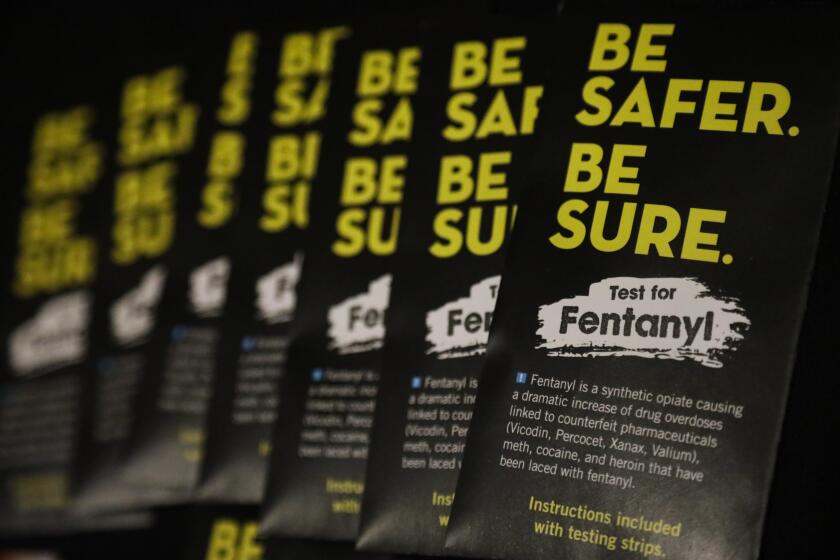Actor Michael K. Williams’ cause of death revealed by New York authorities

- Share via
The death of actor Michael K. Williams, known for his work in “Lovecraft Country” and “The Wire,” has been deemed accidental, according to New York City officials.
Williams died from “acute intoxication by the combined effects of fentanyl, p-fluorofentanyl, heroin and cocaine,” the New York City Office of Chief Medical Examiner said Friday in an email. P-fluorofentanyl, or parafluorofentanyl, is a chemical analog of fentanyl, an opioid 80 to 100 times stronger than morphine.
The manner of death was determined to be accidental, the OCME said. It had no further comment.
The 54-year-old actor’s body was found Sept. 6 in his Brooklyn apartment by a relative who hadn’t heard from him in a couple of days.
‘The Wire’ and ‘Boardwalk Empire’ star acknowledged the pain he brought to his roles. But in his work he also found a respite.
Williams — known for the dramatic scar that crossed his face — had been nominated for a supporting actor Emmy for “Lovecraft Country” but didn’t win at the ceremony last Sunday. In a late August interview with The Times, Williams said he had to campaign for the role.
“My manager even wrote a letter to the producers and the writers, letting them know how much I wanted this role,” he said. Despite the show’s cancellation, he said he would have liked to have participated in another season — or more. “I would like to see four more seasons of ‘Lovecraft Country.’”
While Williams died on the East Coast, the wave of fentanyl overdoses in the U.S. struck nearly simultaneously on the West Coast, where comic Fuquan Johnson and three friends overdosed in Venice on Sept. 5. Only one of the four, comic and actor Kate Quigley, survived.
Fentanyl is often accidentally ingested, killing thousands of Americans a year. Home test kits and a readily available nasal spray could help save lives.
More to Read
The complete guide to home viewing
Get Screen Gab for everything about the TV shows and streaming movies everyone’s talking about.
You may occasionally receive promotional content from the Los Angeles Times.









